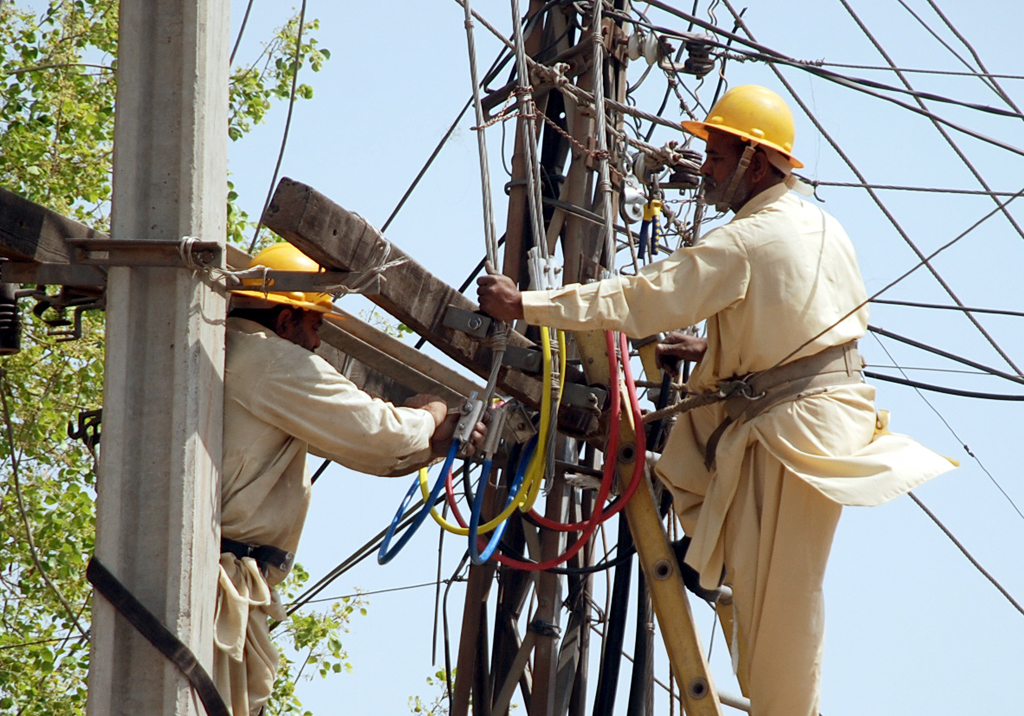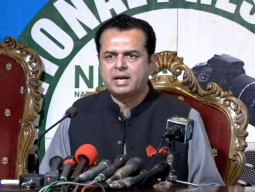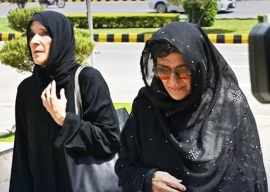
A latest World Bank report shows that less than half of Pakistanis have access to sanitation and only two-thirds to electricity. In such a scenario, the global lender has suggested Islamabad invest Rs2.5 trillion every year to close infrastructure gaps, which is necessary to alleviate poverty.
The report – Reducing Poverty by Closing South Asia’s Infrastructure Gap – is the first analysis of the region’s infrastructure needs by the World Bank. It has found huge infrastructure gaps in six critical socioeconomic areas that in Pakistan’s case require financing higher than the country’s total tax revenues.
The drawbacks of ignoring investments in transport, electricity, water supply and sanitation, solid waste, telecom and irrigation are that the country’s economic growth will be slow, poverty will inch up and the development goals will never be achieved, according to the report.
In terms of percentage, every year Islamabad will have to invest at least 6.6% and at most 9.5% of its total national output in meeting deficiencies in these critical areas. For the current year, the estimated size of Pakistan’s economy is Rs26 trillion – one-tenth of this amount is around Rs2.5 trillion per year.
Contrary to these gigantic financing requirements, the total federal Public Sector Development Programme for the current fiscal is Rs420 billion, which is just 1.6% of the GDP. While the tax collection target for this fiscal is Rs2.475 trillion and the expected receipts will be Rs2.3 trillion.
The situation in Pakistan was quite interesting due to fiscal constraints, said Luis Andres, the co-author of the report while speaking from Washington through video link.
“To close the huge financing requirements, the dollars could come from government investments, increased efficiencies and private sector investment,” according to the authors. Andres said successful implementation of reforms in Pakistan could fetch foreign direct investment to fill the financing gaps.
Requirements and gaps
Due to years of negligence and lack of investment only 67% of the country’s population has access to electricity, according to the report. To increase access and keep pace with the growth rate, the country needs to invest from 3.7% of national output, or Rs951 billion, to 5.5%, or Rs1.4 trillion, per annum on electricity, the report states.
Similarly, only 47% of the population has access to sanitation services. It will require up to Rs208 billion per annum investment for reversing the trend. In the transport sector, less than three-fourths of the population has access to asphalted roads. The financing requirements of the sector are in the range of Rs250 billon to Rs320 billion per annum.
The irrigation sector needs up to Rs215 billion per annum and the solid waste treatment requires Rs100 billion per annum.
Once growing urbanisation has also significantly slowed down in Pakistan and now about 35% of the population lives in cities, said Dan Biller, the co-author of the report. He added that huge infrastructure gaps and low purchasing power were the main reasons behind slow urbanisation.
The reports suggests that the South Asian region could close huge infrastructure gaps but required $2.5 trillion investment, which could be tapped from both private and public sectors as well as by introducing reforms. In South Asia, 71% of the population has access to electricity, ahead of sub-Saharan African but far behind the rest of the developing world.
Published in The Express Tribune, April 3rd, 2014.
COMMENTS (24)
Comments are moderated and generally will be posted if they are on-topic and not abusive.
For more information, please see our Comments FAQ





1732340798-0/BeFunk_§_]__-(35)1732340798-0.jpg)



1732343209-0/BeFunk_§_]__-(36)1732343209-0.jpg)







@Mirza: "... There is plenty of grass for poor, uneducated to eat and send their kids to madrases..." . Was it not your Shaheed hero who proposed grass to be served for dinner. How presciently proposed, not at 70 Clifton though.
Don't really understand why this has become a Pak-India debate, but I'd like to say one thing. I don't see as much Pakistanis on Indian news websites as much as I do Indians on our news websites. Why this obsession with us, guys?
lol. where are those pakis who want to teach Indians about toilets and poverty?
@ sharabi "leave this is none of our business" well do they? Don't they redicule india progresses in Isro space,IT etc with such rants? Introspection is needed on their part before commenting and ridiculing others on their progresses moving forward despite odds unlike them.
"A latest World Bank report shows that less than half of Pakistanis have access to sanitation and only two-thirds to electricity." Dear Pakistanis, please get this in your heads and never again comment about toilets in India!!!
Agriculture tax is an illusion in the mind of metro people. Last two nights had fierce rain with snow balls and it destroyed the wheat crop badly. In some areas entirely but nobody would care when farmers wont be able to recover the expenses they have made on it since november.
@sharabi:
Haha, how about you stop commenting eagerly on India's lack of toilet facilities then no one would bother. At least Indians don't blow themselves up because they can't relieve themselves in privacy.
India too has the same problems. As per the 2011 census, 47% Indians have access to sanitation and 67% have access to electricity. The difference is that in India these prolems are widely known and there are plans to address them whereas in Pakistan there is minimal coverage of such information. This is why so many Pakistanis hloat about lack of sanitation in India blissfully unaware that situation in Pakistan is no better.
My Advise to all Indians.Do not comment Leave this because it is none of our business
The World Bank has again hit the nail on the head and this time, not implicitly, but EXPLICITLY. We cannot progress unless our Constitution remains unchanged. With our present tax collection ratio, bank debt repayments, absence of regulatory bodies, disrespect for the law.......Pakistan is a HEADLESS CHICKEN (Colorado 1945-47). Salams
This report is false and based upon lies and hate against Pakistan. We had more than three decades of army rule under four Great generals without any corruption and prosperity. How can majority of Pakistanis be without sanitation and other basic necessities? We should not believe these lies against good governance in Pakistan and continue to believe that while most of the country may be corrupt to the core the angels are dedicated to the masses, their problems and corruption free.
Here is an instant escape from this frustrating piece of research - find some online publication that has stats on India that look worse than Pakistan's numbers - PROBLEM SOLVED ;-)
Alhamdulillah we are still better than india, the so called superpower. Please be objective in reporting.
The World Bank and other western organizations are enemies of the land of pure. Our poor masses are used to live without sanitation, clean water and without education. We do not need to waste any resources on these frivolous things on common people. We need a stronger bigger and richer army with more nuclear weapons and most expensive war toys. There is plenty of grass for poor, uneducated to eat and send their kids to madrases. Our rich brothers from gulf are helping us and nobody is hungry and sick. Let us not believe these enemies.
Alhamdulillah we are at least better off than india. Please be objective, guys.
In a country where only 3,75,000 non salary Income Tax Returns are filed and agricultural income is not subject to income tax, this gap has to happen.
Try as much as you can my Pakistani friends to ridicule India about its sanitation problems pretending such problems don't exist in your own country, this report shatters the myth
And Pakistanis were "worried" about Indian toilets!
Every development economist knows this already for years. What is maybe new are the numbers and menu of options. But without the numbers governments could have acted. But they did not and they will not as the socio-economic and political elites despise the poor and are only interested in their own well-being, refuse to pay their taxes, won't give up their privileges, continue to be corrupt, and have the police and the courts on their side. No reports or elite workshops and seminars will change this, neither the peanuts they handout through their well publicised charities. A pity that the report itself is not yet accessible at the WB site.
Half a dozen children is till today the average sustained norm, and the discontented mullahs and their followers are screaming their heads off, we want one more, we want two more.............!
Yet we constantly make fun of poverty in neighboring countries. Our focus has never been on economic development and welfare of people. Just war mongering, strategic games and chest thumping.